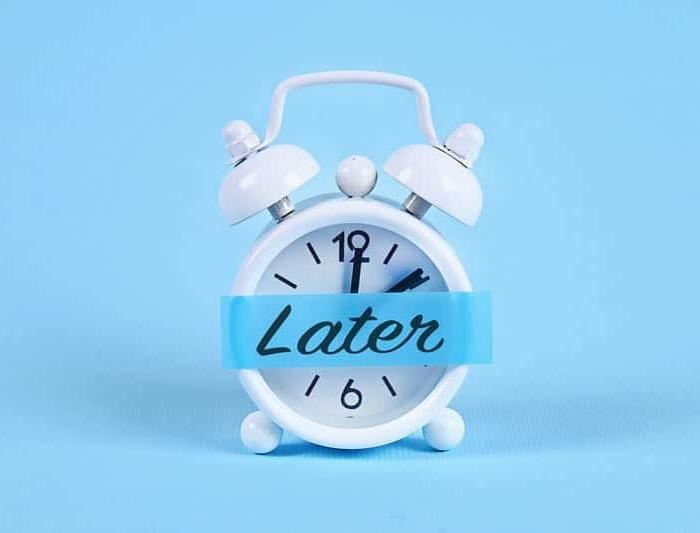
The other day, one of my neighbours was complaining about her teenage son, who has the habit of putting off his homework until the very last minute. She is a very organised mum who finds it intriguing as to how he manages to get such good marks at school by being very “lastminute.com”.
The fact is, of course, that everyone puts things off. You may not wish to admit it, but procrastination plays a central role in your everyday life. We all put things off, pretending that the task we get involved with has a “higher priority”.
However, the COVID-19 pandemic has encouraged a great deal of procrastination. Last week I was speaking for a business group (on Zoom, of course) where several members said that they were “still thinking” about what to do when the pandemic is over. Others said they were in the “early stages of planning” for a “new normal”.
At the same time, in my educational work, students are intending to come to university in September who are asking “what is happening”. Meanwhile, university leaders across the UK are saying “we’re still thinking about it”.
There is no real need to “think about it”. They could, if they wished, launch an entirely online university right now. Nothing is stopping them. Equally, businesses thinking about the “new normal” could stop putting off decisions about what to do in that future and do something entirely different right now.
One of the reasons why decisions are being delayed is because of anxiety. When we have anxious feelings, we delay decisions. At the moment, even though they do not wish to admit it, business leaders and educational experts are all anxious. Gosh, even the Chancellor of the Exchequer, is concerned about what may come in the future. So, even he is delaying things – putting in “stop-gap” items now and putting off what ultimately needs to be done for the economy until a later date.
There are several “pop psychology” ideas about procrastination and how you can beat it. True procrastinators will buy books about how to get things done, but put off reading them. Others will read these books and implement some of the advice, but then delay actual change as they are “not quite ready”.
Generally, we tend to do things “now” that give us psychological pleasure and put off those things that lead to negative feelings – or which we think will be a problem for us mentally. Because we are unsure about the future and anxious about what will happen to us personally, we have no real idea about the psychological impact of any decisions we make during the lockdown period. So, our brains assume it will be negative, and hence we put off making decisions.
New research on procrastination shows that we tend to put off two kinds of actions. We delay acting on positive things which give us a “high” when we think about them. That’s because if we act on them, our subconscious realises that we will no longer get that good feeling. Hence we avoid taking action because we are getting gratification out of the delay.
The other kind of inaction happens when the event itself is going to be negative for us. So we stop thinking about it because the thought of taking the actions reminds us it is going to lead to negative feelings. So, we put it off.
What this tells us is that it is more complicated than those self-help books would have you believe. We don’t do things “now” just because we like them. There are things we like looking forward to – so we put them off. We avoid positives just as much as we don’t want to do the negatives.
So, what can you do about this? The answer may well come in the form of a spreadsheet. This tool allows you to analyse what it is that is delaying action and to investigate the factors that make it more likely that you will do something.
One of the reasons we are putting things off during the pandemic is because we haven’t thought about the real reasons why we are doing so. Anxiety is one factor, but there will be others which this spreadsheet will help you uncover.
Of course, you may well now be putting off looking at that spreadsheet..! Hey ho.
